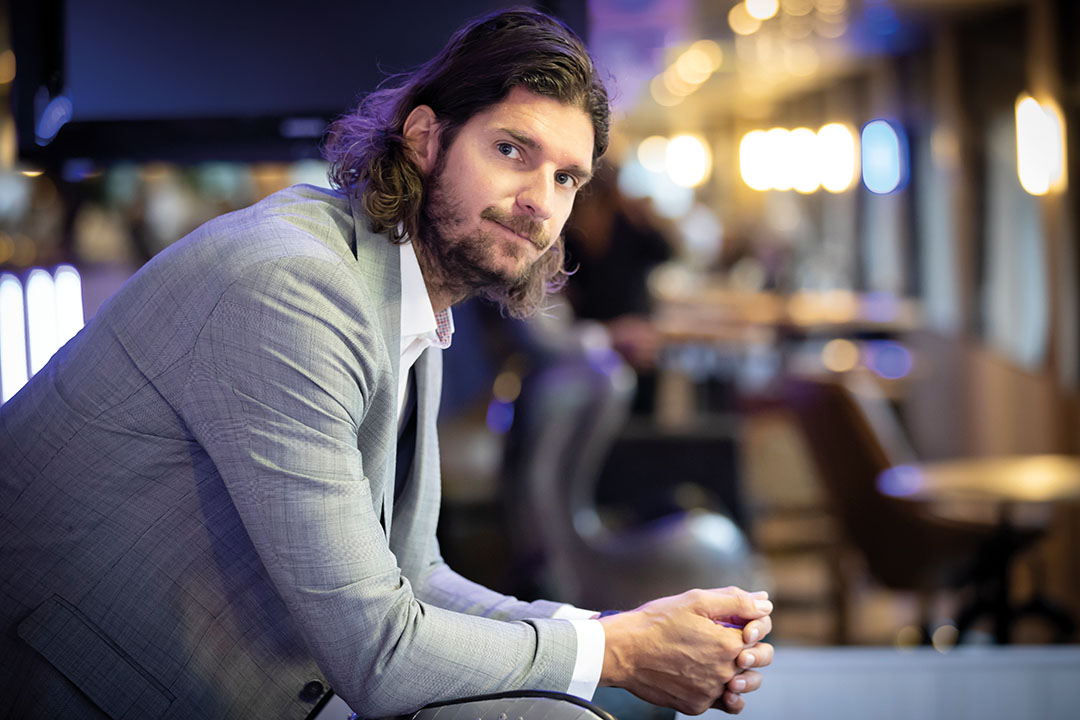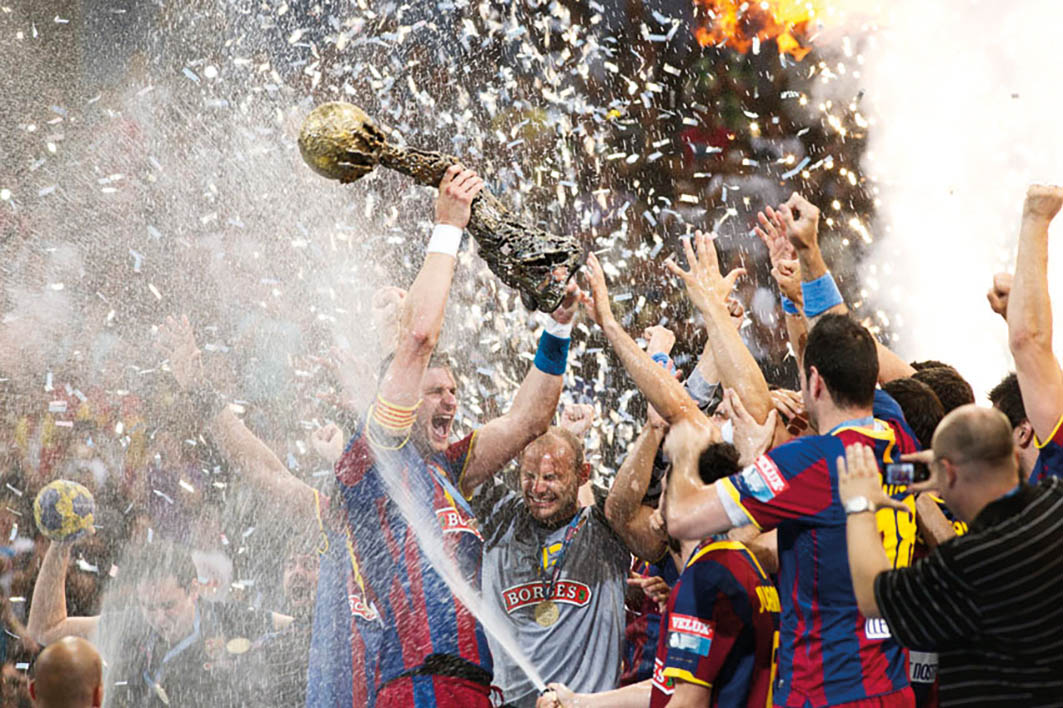In Szeged, where I spent my first almost 20 years, handball is everything and the old arena’s atmosphere grabbed me and never let go.
It was obvious that I, the tall kid, would play either basketball or handball. I grew up with my brother, Levente, always playing with balls. As my father, also László, used to play basketball, I started with it, but handball turned me over. I also have a two-week long football career, but everyone quickly realised that I was born with a handball in my hands.
Although I had to stick to my decision, I got every help from home and as successes came through in my early years, it was not a question whether I had taken the right or wrong decision. In Szeged, where I spent my first almost 20 years, handball is everything and the old arena’s atmosphere grabbed me and never let go. Also, it was mandatory in the primary school to play handball, but for me it was just another amazing opportunity, so I enjoyed every minute of it.
I most definitely remember the very first international trophies I won. Winning competitions in Switzerland and Italy confirmed my path, I even was named MVP at one of these. I felt so cool, and that was ground-breaking, I knew what came next: handball is and will be my life. From that point, I was never thinking about anything else. I cannot imagine life without handball and sport. Even though I understood automatically that I will have so little free time. For an adolescent boy, I had to accept the facts and the sacrifice, but for what? For evolving and getting better and better!
My favourite Champions League memory is my very first victory at home at the Palau Blaugrana with Barça in 2005. We lost against Portland San Antonio in 2001, then we did not even qualify for the Champions League in one of the following seasons, so it was an emotional roller-coaster.
The best coach I worked with was Valero Rivera, the person who taught me a lot at the beginning and helped to play in Barcelona. Antonio Carlos Ortega was the most thorough, he definitely understood every little piece of handball and translated it into the players’ language. There have also been plenty of players from whom I learnt a lot. Staffan Olsson is one of them, and not just because he has long hair, too. His style and calmness were very sympathetic to me. Also, players like Mikkel Hansen, Nikola Karabatic, Uros Zorman were all tough to follow as they were quick and able to score from anywhere.
The feeling that handball would be my life has never changed, it still has a crucial part of my heart thanks to Telekom Veszprém HC and the Hungarian Handball Federation, although nowadays I have a role outside of the court. I consider myself just as hard-working as I used to be as a player, and I have goals to reach, even dreams. With the national team, a medal on a major event that I miss from my career, in Veszprém the long-awaited Champions League trophy, that I also could not deliver, although we have been twice in the final.
Twenty years is a lot, I have gained plenty of experience both in Spain and at home. Naturally, we are different and the László Nagy I became, has his own thoughts. I saw what is needed for victory and tried to implement that.
Handball is fast, you do not have time to think otherwise the match is gone. In the two decades, there were bad choices, mistakes on the court, but I never carried that with me for too long. I believe that without mental preparation and toughness I would not be the person I am today. This is one of the important things I learnt in Barcelona.
I spent there 12 years, Catalonia and Barcelona is my second home, the place where I became a grown man. Not only in my career but in my personal life I took steps ahead. The culture, the way of thinking and the people there shaped me. As today’s handball is led many ways by Spanish coaches and tactics, it is not a shame to learn from winners. This is the mentality that we want to implement both at Veszprém and the national team.
Being a professional athlete abroad always means emotional solitude, even though I used to live together with other young players for at least a year. I felt alone as my family, my friends were so far from Barcelona. However, you cannot let your mental state drive you on the court and frankly I did not even have time to think too much as travelling, practicing and the matches took most of my days. Everything was about performance, while I really enjoyed my period there.
There are always ups and downs and I always stood up when something came in my way. Around 2010, the circumstances around the Hungarian national team were not perfect and as I was in Spain, their association started a procedure for me to change nationality. In the meantime, Veszprém approached me, I accepted their terms and returned home. With that, it was obvious for me to wear the red-white-green jersey after a three-year hiatus. I like to think that the conditions adjusted due to my leadership and the point is that the national team evolved by that.
I wanted to retire at Barça, it was my dream. However, the club does not really give long-term contracts to players over 30 years. While both Szeged, Kiel and Paris wanted to lure me, Veszprém were more persistent, thus I moved back to help their one and only purpose, winning Europe’s top flight. Sadly, I did not lift the trophy as player of the Hungarian powerhouse. Veszprém was not just an opportunity as a player but a place to continue my career even after I retired. At the age of 38, the time had come and I quickly started to work off the court. It was clear that I wanted to stay in handball and as the record champions gave me a chance, the Hungarian federation also jumped on the train, and I love every minute of it!
Being at Veszprém means being at the greatest arena of Europe, because the supporters are fanatics and the grandstand is really close to the court which puts a huge pressure on both sides. I think that every player, even if he played in Veszprém only once, will put the arena in his personal top three.
As time has passed, I was more and more conscious regarding my body, my soul, and my plans. Naturally, I saw the signs that I need to focus on those more. Massages and yoga helped a lot to extend my career and now I can easily say, I do not miss playing handball. Thankfully, I am still around the game so this might have to do something with that. As long as I can work, I want to do it in sport.
I always had goals in my life, and I would do nothing differently if I went back in time.
László Nagy
CLICK HERE AND EXPLORE ALL LEGENDARY STORIES

Being a professional athlete abroad always means emotional solitude, even though I used to live together with other young players for at least a year. I felt alone as my family, my friends were so far from Barcelona.
